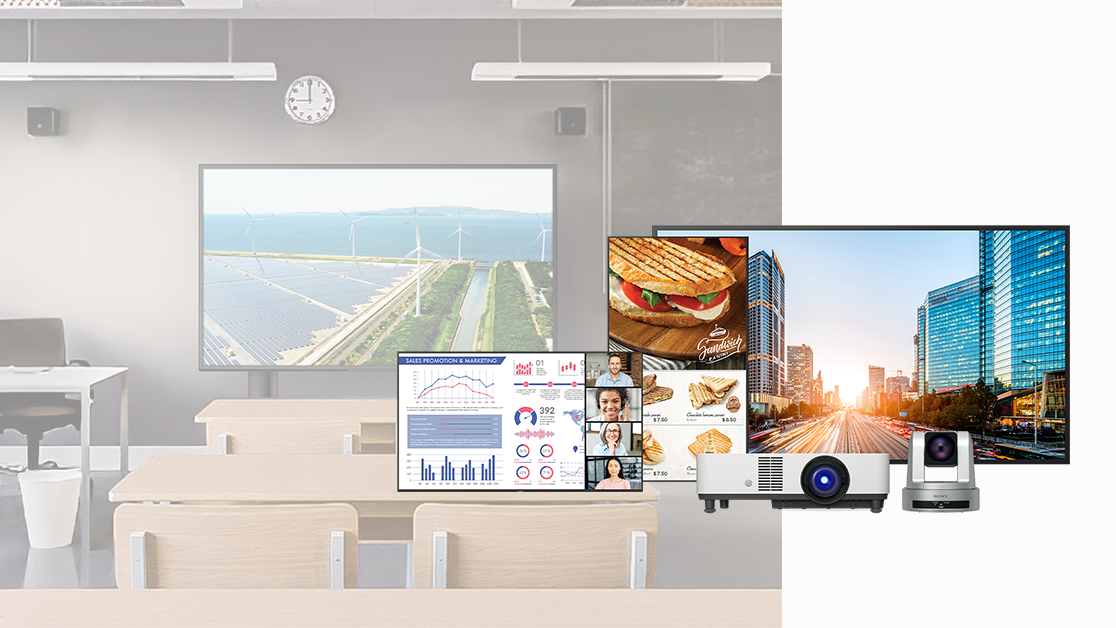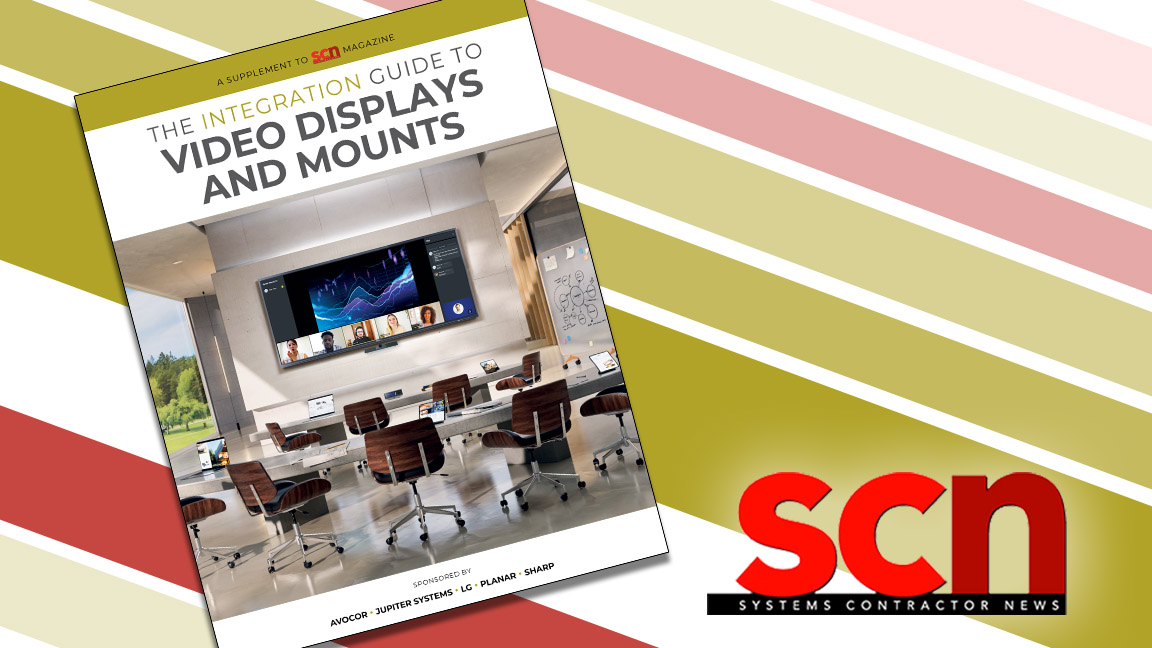Passaic County Community College Goes HyFlex with Sony Technology
College’s technology hybridization efforts break down barriers and provide new levels of accessibility.

Passaic County Community College (PCCC), located in Passaic County, NJ, operates four campuses throughout the county, and enrolls more than 13,000 students. PCCC prides itself on offering a holistic educational experience that prepares its students for their next chapter. To achieve this, the school turned to Sony technology, as well as a curriculum that engenders curiosity and a flexible and accommodating HyFlex learning environment that provides an equitable educational experience for all students regardless of where they choose to learn from.
Like many schools, PCCC needed to pivot fast when the pandemic hit, and the thoughtful technology changes the college employed helped them not only continue teaching when they closed their physical doors but forever changed their approach to education and its accessibility in unexpected ways.
Christopher Mueller, director of IT users services for PCCC, helped usher in this collaborative era for the school, working closely with Tele-Measurements for audio visual systems guidance—from design to implementation. Armed with additional Coronavirus Aid, Relief, and Economic Security (CARES) funding, Mueller, Gene Battiloro C.T.S., technology specialist at Tele-Measurements and Larry Defazio, account manager at Sony set out to design and install classrooms that would be prepared for whatever the future brought.
“Like many, we got sent home that first March when COVID struck and went into remote Zoom sessions. Six months into this the President of the college came to me asking if we could start to design a model for hybridizing our classrooms,” said Mueller. “To design out these new, hybridized, interactive classrooms required us to upgrade our projectors because a lot of them were still using VGA and analog. We needed to accommodate HDMI and Macintoshes. We were looking at multiple product lines and the only manufacturer that wasn’t really suffering from supply chain issues was Sony. We wanted to get students back on campus as soon as possible, so we had to start developing and implementing these classrooms and Sony was delivering product on time.”
The solution? Nearly 100 VPL-PHZ60 6,000 lumen 3LCD laser projectors throughout PCCC’s four campuses, as well as SRG-120DU PTZ cameras and a sampling of professional BRAVIA displays including 26 FW-100BZ40J 100-inch 4K models. PCCC uses its professional BRAVIA displays in the back of the classrooms to present to students. They also needed PTZ cameras mounted in the back of the rooms for instructors who walk around the classroom and work on whiteboards.
“Tele-Measurements is a technology leader in Audio/Video, Multi-Media and Remote Learning solutions systems and has been for many years,” Battiloro stated. “Having the accessibility to our many awarded contracts makes us an obvious choice to clients like PCCC. Each project I work on represents my brand and my company, so I treat every installation as a clean slate. When I think of Sony, I think of quality, longevity, craftsmanship and reliability. Additionally, they offer great warranties and promotions. Their equipment has a certain aesthetic feel that matches what I was envisioning for these rooms. The technology and craftsmanship Sony offers is an added value to the finished project.”
A daily selection of features, industry news, and analysis for AV/IT professionals. Sign up below.
“I always knew Sony to be a reliable option that was very good quality, so when we had an opportunity to upgrade our services, Sony came in on top,” Mueller added.
Battiloro also spoke of the importance of control and connectivity, sharing that “Sony interacts well with many control systems and their software is always up to date. Sony has a great product lineup across the board. Additionally, as an Extron house for our control system, it was beneficial that Sony integrates with Extron very well, making it easy for instructors to go to a control panel and get started and configured right away.”
While Mueller and Battiloro helped select and implement Sony’s projectors, displays and cameras, the ultimate test is user feedback. “The instructors love the technology from the standpoint of, they don’t have to think about it," said Mueller. "That’s the reliability that comes with using Sony. It’s all working as it should be, which is important to a community college that doesn’t have a large technical support team. Knock on wood, we have not had a failure using our Sony product line and that’s important to me.”
Speaking specifically about his experiences with the projectors, Mueller noted, “The HDBaseT is a godsend. It’s made installation 100 times easier than having to run numerous cables to our projectors. We run HDBaseT from our switchers in the podiums to the projectors and that allows for a single point, which means fewer wires and fewer points of failure. Additionally, they provide very accurate colors, are bright, and can compete against light coming in from outside. Plus, they turn on quickly. That speed at which they turn on is critical because every minute is a chance to captivate a student.
“The warm-up time and the speed at which they come up, paired with the clarity has been a great added bonus for the faculty. The 100-inch profile-mounted displays are in the back of rooms where you see 40 students. When you put them on a Zoom screen there are normally roughly 12 students who are remote at any given point, so with the size of these displays, it actually feels as if the remote students are in the classroom because they’re presented at about the same size as the in-person students.”
“Everyone should feel as if they’re in the same room and learning the same thing and the technology helps to achieve that," Bolero added. "It enables everyone to feel immersed and no one to feel left out.”
“Sony’s PTZ cameras had the lens ratios that allowed us to get the students who were remote to be able to see the instructor with clarity—especially as we zoomed in—in these classrooms of 30 and 40 students," Mueller said. "They’re reliable, they’re high quality and they’ve got a great image—all at 1080P 60 frames per second. And for instructors who use whiteboards, students at home and in the classroom can easily see the notes which is a godsend to the faculty.”
Battiloro, who has worked with both Sony and PCCC for a very long time, looks forward to their evolution together as partners. “Sony is good at listening to their end users, integrators and dealers. They take the time to learn what the people want and understand their pain points—whether it’s another input/output, Bluetooth connectivity, more lumens to a projector or variable lens options.”
Having all of this new technology and learning how to best use it over the course of the past few years has enabled PCCC to become a fully hybridized environment, year-round and opened up a world of new possibilities for students and instructors.
“The technology is helping bring students back to learning, Mueller explained. "With our hybridized set-up, students now have the option to take classes remotely or on campus and can mix and match based on their schedule. As an urban institution, this allows students who work or who are parents or who have other commitments to take their classes from literally anywhere. And it enables students to enroll in classes on different campuses, as well, because they no longer have to commute to an alternate campus.
“PCCC is definitely using technology as a way to increase enrollment and get a student in the door but more importantly, for retention—to keep them here until they’ve completed their degree or transferred to a four-year institution.”
The AVNetwork staff are storytellers focused on the professional audiovisual and technology industry. Their mission is to keep readers up-to-date on the latest AV/IT industry and product news, emerging trends, and inspiring installations.
